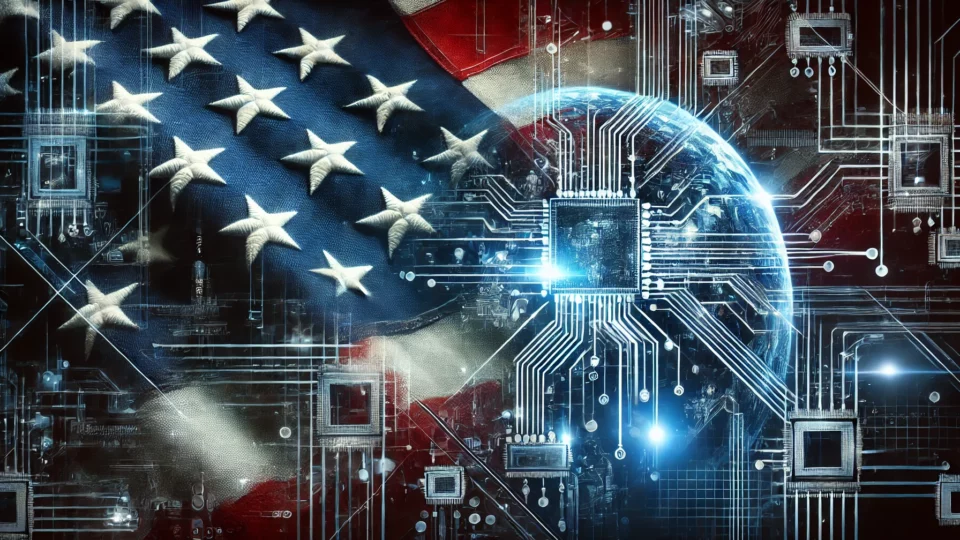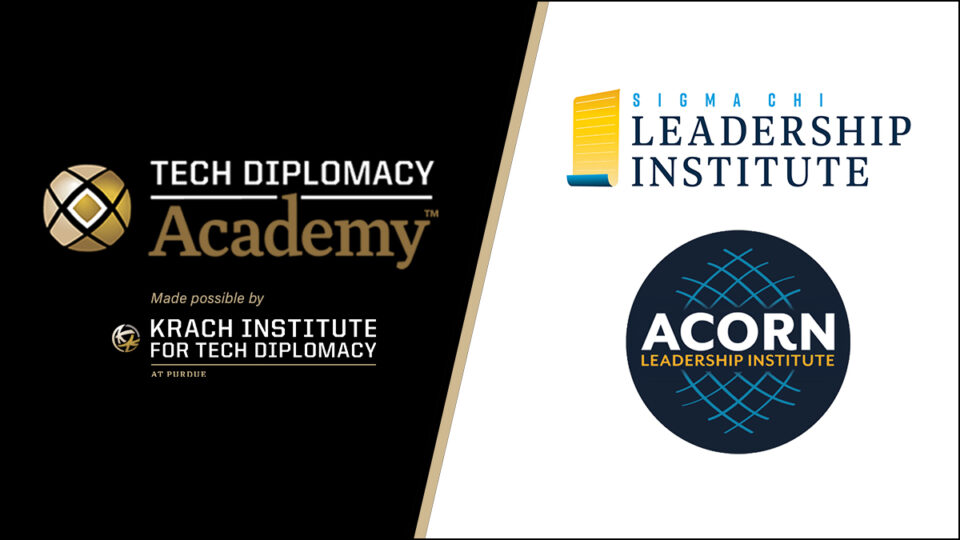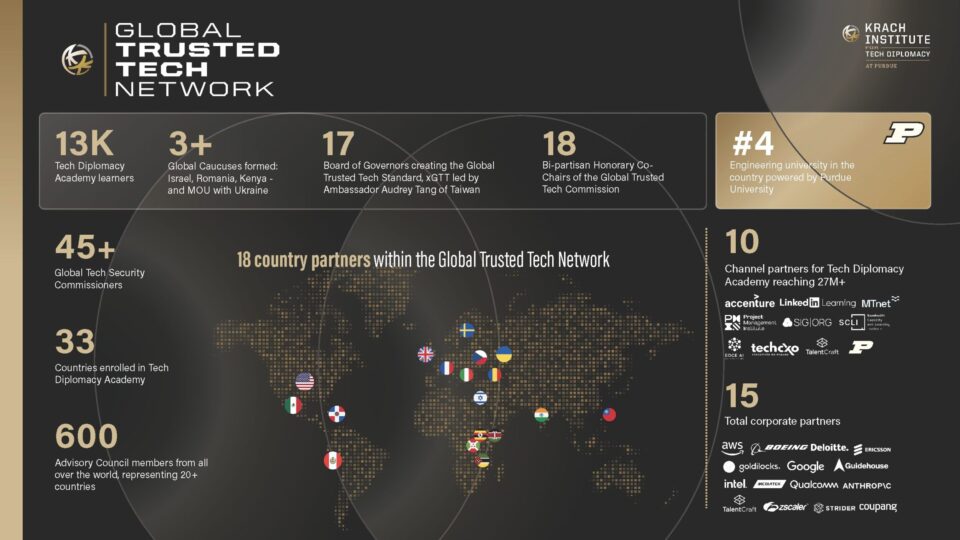The AI Great Power Advantage
Manisha Singh
11.06.24
America has the competitive advantage in AI origin, and in the tech titans who are racing to perfect and mobilize it. These titans, running companies known for other things, are now competing to see who can create the best face of the future.

Author: Manisha Singh, Krach Institute Senior Fellow for Artificial Intelligence and National Security; Former Assistant Secretary of State
Artificial Intelligence can be America’s next great power advantage. This new phenomenon of technology may well be the vehicle to maintain strategic advantage and spur a new economic trajectory. As the election draws near, the public wants to know what new opportunities the candidates are promising. There have been examinations and recriminations of how the American manufacturing base has been diminished and how trade has sent jobs overseas. We are in a perpetual state of economic and strategic conflict with adversaries like China and Russia. History shows us that American innovation has powered both the domestic economy and global leadership.
AI seems still futuristic with its illustrations of computer generated faces. The reality, however, is that AI is here, particularly in its financial impact. Earlier this year, AI powerhouse Nvidia reached over $3 trillion in market cap, putting it in league with giants like Apple and Microsoft. The Creating Helpful Incentives to Produce Semiconductors (CHIPS) Act, enacted in 2022, has promised billions of dollars in subsidies to every part of the technology supply chain. The American public should expect this taxpayer funding to translate directly into jobs and productivity domestically. AI ecosystems and infrastructure, which are growing dramatically, have the capacity to create opportunities across the talent spectrum.
America has the competitive advantage in AI origin, and in the tech titans who are racing to perfect and mobilize it. These titans, running companies known for other things, are now competing to see who can create the best face of the future. Apple CEO Tim Cook has been in the media explaining Apple’s late start in AI and his plans to catch up. Meta CEO Mark Zuckerberg has very publicly made a case for open source AI. Google CEO Sundar Pichai focused his recent speech at the United Nations “Summit of the Future” specifically on the transformational nature of AI. Competition has been the hallmark of progress in American industry.
Yet there is another competition afoot which should be cause for alarm. The Pentagon has released reports detailing that China is fast developing AI military applications. The Chinese military and economy are currently second to the U.S. But China is developing AI capabilities in both to gain great power advantage. The Chinese government laid out ambitious plans for AI progress as early as 2017. To date, the U.S. has outpaced China. As the global marketplace has learned, however, China doesn’t adhere to the rules of international trade, gaining advantage in any way it can. The U.S. government is instituting specific directives to prevent American investment in Chinese AI. There has also been a public and private sector embrace of TSMC, the Taiwanese company with a near global monopoly on the specialized chips needed to power AI. TSMC has been incentivized to onshore operations to the U.S. This strategic move should also serve as a motivator for domestic chip production, especially as CHIPS Act funds are disbursed.
U.S. allied nations are in the AI race as well. India has adopted a similar risk-based approach. With its abundance of tech-educated talented and its similar wariness about China, India can be a strong AI partner. The European Union, as it is inclined to do, has stepped hard on the brakes already. Earlier this year, the EU enacted lengthy, onerous sets of AI regulations which were met with skepticism by EU and global tech firms alike. U.S. officials, by contrast, have so far maintained an even hand with grips at ten and two on the steering wheel. Members of Congress have made efforts to become better AI educated as, in theory, informed regulation should be more effective. The great power advantage opportunity is apparent, as is the downside of letting the moment escape and surrendering it to America’s enemies.
Novel legal and ethical challenges will inevitably accompany the increasing presence of AI in society. As with all new innovations, from the automobile to the internet, the private sector must necessarily, voluntarily assume a fiduciary duty, and government should find the right guardrails. Adversaries, in the form of state and non-state actors, will act without inhibition to exploit AI economic and conflict capabilities. Every next generation of technology is labeled “revolutionary.” But AI is, in fact, the first that is being developed to think for humans, perhaps even “overthink” us creating a potential existential issue. If America is at the center of the new AI universe, the great power advantage can be its deployment not only for our own security, but for a more secure world overall.
Manisha Singh is the Senior Fellow for Artificial Intelligence at the Krach Institute for Tech Diplomacy at Purdue University and the former Assistant Secretary for Economic and Business Affairs at the U.S. Department of State. She is the author of “The Café on Main Street.”
Subscribe to Manisha Singh’s blog, Theory of Manisha

